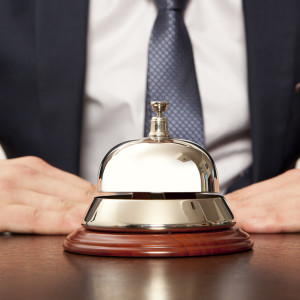With peak travel season upon us, millions of American families will soon leave home to take their yearly vacations at the beach, in the mountains, and everywhere in between. Airfares, rental cars, and hotel rooms will need to be booked and many will use third-party sites to find the best prices.
Thanks to the Internet, consumers can compare hundreds of choices with just a few clicks, and the resulting competition has helped make travel more affordable and accessible. That may soon be coming to an end if some big hotel chains get their way.
Hundreds of millions of rooms have been filled successfully to customer satisfaction, but you wouldn’t know it from a recent rash of stories by travel writers and consumer advocates warning of the “dangers” of using these sites.
It’s true that it is sometimes simpler and therefore safer, albeit more expensive, to book directly. But the genesis of these stories were not thousands of Americans standing outside hotels with their reservations unfulfilled. Instead, they were hatched by lobbyists from big hotel chains, such as the American Hotel and Lodging Association, a fact that the head lobbyist for the group recently bragged about.
They would like to force consumers to book directly, and they have turned to the government to limit consumer choices and options on their behalf. If successful, that effort may put a few more dollars in their pockets, but it will damage competition and harm their customers.
Since the advent of the Internet, hotels and airlines have used third-party booking sites to fill excess rooms or seats. Travel companies have become so reliant on these websites that consultants for the hotel industry have deemed them “hotel cocaine.” They also resent that the sites have accumulated considerable market power by attracting large customer bases, which in turn provides leverage during contract negotiations. Hotels that can persuade, or force, more of those customers to book directly stand to gain through increased profits.
If hotels want people to book directly, they should compete for the eyes and pocketbooks of the American people. By all means they have every right to decide whether they wish to have a business relationship with online travel agencies and other third-party sellers that operate on commission, but when their lobbyists are turning to government to intervene, that’s another matter entirely.
At least five members of Congress and one senator have petitioned the federal government to go after third-party travel sites. Sen. Chuck Grassley, a Republican from Iowa, has urged the Federal Trade Commission to investigate whether consumers know they are booking through a travel site instead of directly, but such confusion is not widespread, and tends to be isolated among the elderly and others not as sophisticated in using the Internet.
Thanks to new technologies, consumers are better able to find the specific information that fits their needs. Travelers already know that price comparison websites provide significant consumer benefits through enhanced price transparency, but studies also show that the subsequent increase in competitive pressure translates into billions of dollars in value each year for travelers. Those benefits will be put in jeopardy if the hotel lobbying campaign is successful.
Fraudulent practices should of course be combated, but existing law is more than up to the task. By blowing risks out of proportion, the current lobbying campaign to push enforcement even further risks politicizing the regulatory process to benefit one special interest over another at the expense of consumers.

